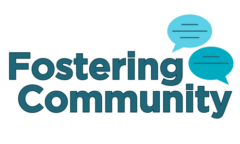by Sebastian Hable
Indigenous youth in foster care face unique challenges but also have incredible opportunities to build skills and connections that empower them to thrive. Whether you’re focusing on education, life skills, or mental health, there are resources and strategies to help you navigate this journey.
1. Education: Your Path, Your Future
Education can open doors to a brighter future. If you’re in foster care, you might be eligible for bursaries or grants designed for Indigenous youth. Look into programs like the Indigenous Skills and Employment Training (ISET) program or scholarships specific to Indigenous students. Remember, it’s okay to take your time to figure out what you want to pursue—there’s no one “right” path.
2. Building Life Skills
From managing your money to preparing for independent living, life skills are essential. Start small by learning how to budget your expenses or cook simple meals. Many community organizations offer workshops tailored for youth in care, where you can practice these skills in a supportive environment.
3. Mental Health: Prioritize Yourself
It’s normal to feel overwhelmed, but you don’t have to face it alone. There are culturally relevant mental health supports available, such as counseling services rooted in Indigenous traditions. Talking to a trusted Elder or support worker can also help you find balance and connection to your identity.
4. Peer Connections: You’re Not Alone
Finding others who understand your experience can be empowering. Consider joining a youth group or online community for Indigenous foster youth. These spaces offer a chance to share your story, learn from others, and build lasting friendships.
5. Your Resilience is Your Strength
As an Indigenous youth, you carry a legacy of resilience. Despite the systemic barriers you may face, there are resources, people, and organizations ready to support you. Lean into your strengths, ask for help when you need it, and remember—you have the power to shape your future. You’re not on this journey alone. Whether you’re looking to continue your education, find housing, or build stronger connections, there are people and programs out there to guide you every step of the way.









